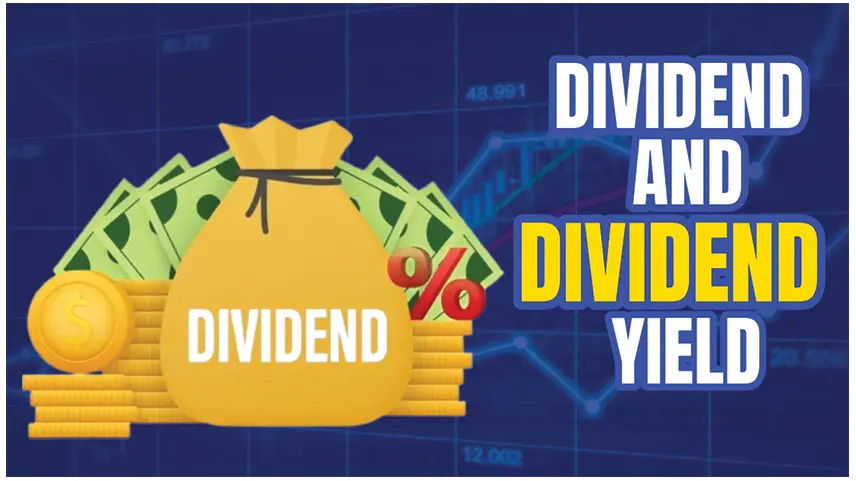Dividend and Dividend Yield
What is a Dividend definition?
A dividend is an allotment of a share of a company's profits to its shareholders. When a company earns a profit, it may choose to retain some of the earnings for reinvestment in the business, but it may also decide to distribute an amount of the profits to shareholders as a dividend.
Dividends can be paid in cash, stock, or other property, and the amount and timing of the dividend payments are determined by the company's board of directors.
Dividends are a way for companies to reward their shareholders and can provide a steady stream of income for investors. However, not all companies pay dividends. Investors should consider various factors, such as the company's financial health, growth prospects, and overall market conditions, before investing in a stock for its dividend yield.

What is dividend Yield?
The dividend yield is a financial ratio that calculates the annual dividend earnings of a company relative to its share price. It is expressed as a percentage and calculated by dividing the annual dividend per share by the current market price per share.
The dividend yield is a useful metric for investors interested in generating income from their investments. A higher dividend yield typically indicates a higher rate of return on the investment. Still, investors should also consider other factors such as the company's financial health, growth prospects, and overall market conditions before making any investment decisions.
Dividends have both advantages and disadvantages for both companies and investors. Here are some of the key advantages and disadvantages of dividends
Advantages of Dividends
Provides Income: Dividends provide a steady income stream for investors, which can be especially attractive to retirees or investors looking for regular income.
Increases Stock Value: Dividend payments can increase the value of a company's stock as it signals to investors that the company is profitable and financially stable.
Encourages Investment: Dividend payments can attract new investors and encourage existing investors to hold onto their shares. They may be more likely to reinvest the dividend payments back into the company.
Disadvantages of Dividends
Limits Capital for Expansion: Dividend payments reduce the capital a company can reinvest in the business for growth and expansion.
Unpredictable: Dividend payments are not guaranteed, and companies may reduce or suspend their dividend payments in response to economic conditions or changes in the business.
Taxed as Income: Dividends are typically taxed as income, which can reduce the after-tax return for investors.
Overall, dividends can be a valuable component of a company's financial strategy, providing income to investors and signaling financial stability to the market. However, companies and investors should consider the potential drawbacks of dividend payments before making investment decisions.

0 comments